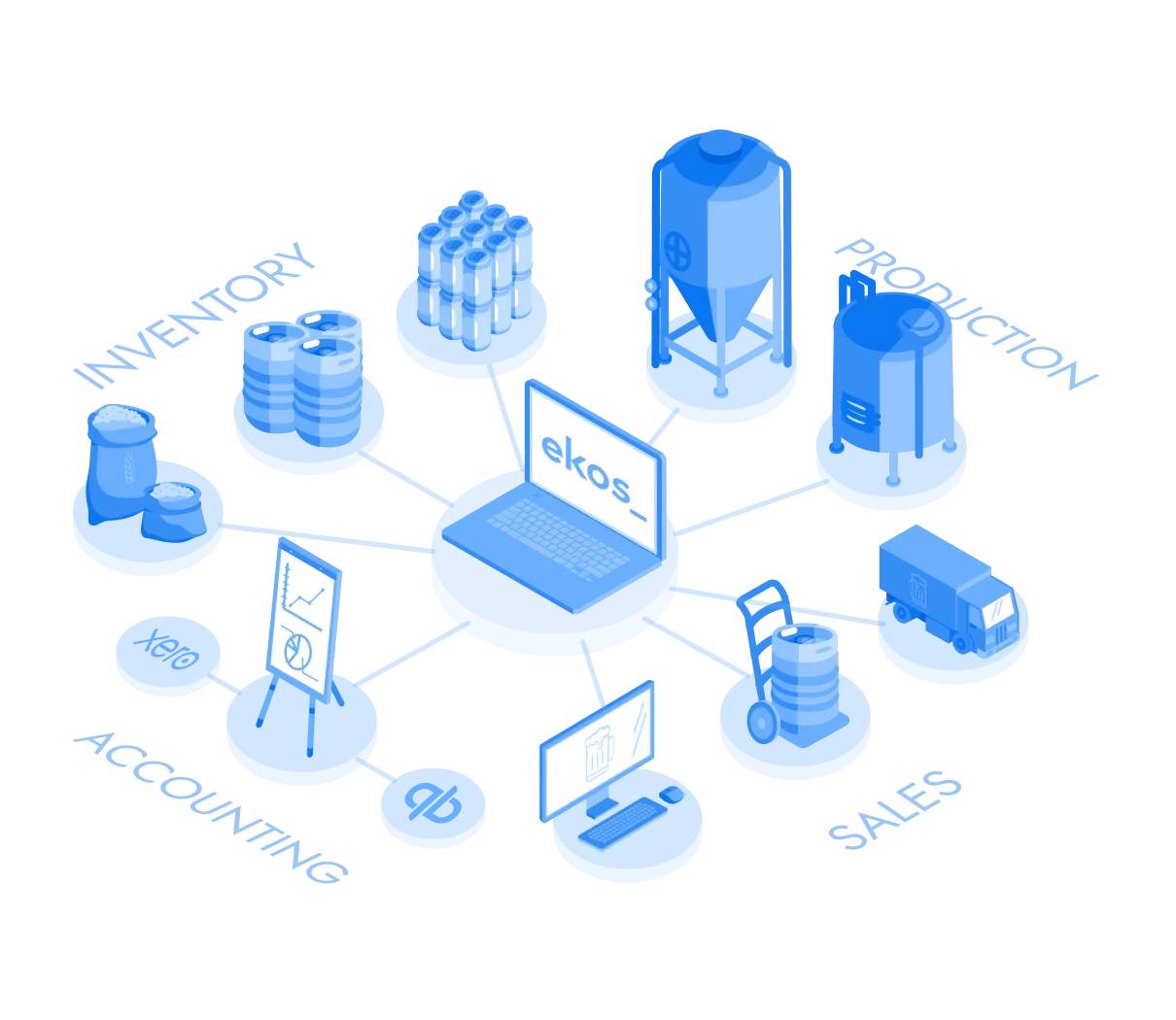After you’ve done all of the practical and financial work for your business, one of the most important things you’ll do is hire your team. Having the right people working for you can make or break any business, but especially when you’re trusting others to carry on your winemaking tradition and take good care of your customers. No pressure though.
Keep reading to get prepared for building (or restructuring) your team.
Who’s Who?
First things first: Who are you going to count on in your tasting room? No two businesses are the same when it comes to structure — you could have a lean team of full-timers who would do (almost) anything for your business. Or you could have a stacked team of part-timers who really specialize in their role and provide specific top-notch services. No matter which end of the spectrum you lean into, ensure it’s the right fit for your business.
When deciding your structure, think about all of the different positions that could make up your tasting room team. You might want all of these, or just a few. Whatever the case, evaluate all your options.
The Vice President of Hospitality manages everything from events to your tasting room team at a high level.
The Tasting Room (or Front-of-House) Director oversees both the tasting room and event teams — they manage operations in the tasting room and events on a more granular level.
Your tasting room’s Marketing Manager utilizes sales data and industry trends to manage your winery’s social media account, events, and branding.
The Onsite Event Coordinator is your point person for everything events-related. From inquiries to execution, they’re hands-on. They also could oversee a team and/or work with other staff to execute events.
Tasting Room (or Front-of-House) Managers manage employees in your tasting room and ensure customer satisfaction from a high level.
For your tasting room’s day-to-day operations, the Tasting Room Manager on Duty (or Shift Manager) helps build and manage your tasting room team and ensures operations, inventory, and customer service stay in line each day.
Your team’s Merchandise Manager (or Merchandise Coordinator) organizes and oversees all activities related to selling, purchasing, and tracking merchandise.
On the most granular level, your Tasting Room Associates serve patrons, ensure customer satisfaction, and help set your tasting room’s ambiance.
For more details on each of these team members and how we recommend you structure this team, download our Tasting Room Toolkit here.
Draw In the Right People
With the right tools and language, it can be relatively simple to earn the interest of potential employees who fit your company’s culture. From developing the perfect job description to running successful interviews, every detail counts.
The First Impression
When crafting job descriptions for your team, consider the practical everyday role they will play in your business. This is a great place to start if you’re lost. Consider:
- What are the basic functions of this role?
- Who will this person report to?
- What type of background experience do you hope to see in a candidate?
- What do you hope this person will bring to your team — not just skills, but attitude or personality?
Asking these questions should point you in the right direction. After you’ve gathered the basics, don’t be afraid to put your own flair on it. With language that matches your brand, you can really find the right folks. Plus, imagine how many job postings your applicants have read — there’s no harm in standing out among the crowd. Remember, as we suggested with the header, this is likely your applicants’ first impression of your company. Don’t gloss over this detail. Another important note for job descriptions is their persuasiveness. This is your time to explain why it’s so great to work for your tasting room and have prospective employees buy into your company.
When They’re In The Door
Now that you’ve wrangled in a few promising applicants, it’s time for the interviews. If you’re a people person, this could be easy. If not, don’t fear — we have you covered.
It’s important to include stakeholders for any given position in your interviews. If you’re hiring a manager, it would be a good move to include a few of their direct reports in the process. After all, they will be working the closest with this person. It’s also a good idea to have a standardized way for these fellow interviewers to share feedback to keep the conversation focused on qualifications and whether the candidate fits with your brand and values.
During the interview, stay focused. Both you and the candidate want the process to move quickly, so ensure your questions are effective and thoughtful. Here are three key questions to consider asking:
- What experience have you had that you see as being highly useful in this new role?
- What soft skills do you possess that make you a good team player — and why?
- Outside of your work and career, what other goals do you have for your life?
Looking for more hiring and interviewing inspiration? Check out our Tasting Room Toolkit.
Retention
After you’ve cultivated your all-star team, you need to work to keep them there. Working on employee retention is known to reduce turnover and make your team more productive.
Your business’s onboarding practices are a fantastic place to start with retention. If you are open and develop a line of communication with your staff as they join, they’re far more likely to feel like they can speak up with ideas or complaints, instantly making them feel more a part of the team. Onboarding is a great place to start ensuring your team knows everything they need to about their position — from what type of language to use to utilizing new technology on the job, you should spell things out for new team members before they even have to ask.
Onboarding leads us into ongoing retention for your team. Company get-togethers, personal development, and mentorship are all wonderful ways to let your team know that you care about them as people, even when the days get busy. What works for your team might depend on your budget, but just know you don’t have to spend a lot to let your team know that you care. Here are a few ideas for building retention and camaraderie:
- Company potlucks
- Personal development worksheets
- Mentor pairing
- Team-building activities (puzzles, escape rooms, etc.)
- Holiday parties
- Celebrating work anniversaries
Other benefits you could consider for your staff:
- Strong benefits package
- Time off
- Company swag
- Discounts on wine
These are all great options for keeping your team together. For more on building your staff and business, download our Tasting Room Toolkit.
Looking for More?

Our Tasting Room Toolkit is jam packed with tips and tricks for more than just hiring — from technology to events to marketing, the toolkit has it all. It’s free to download, so why not check it out? You can get the guide now by clicking here.




